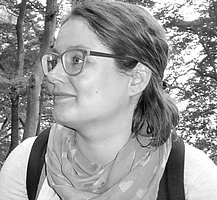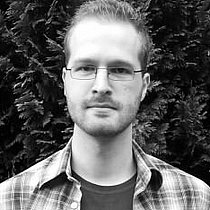On 24th of November 2016, in a nice restaurant in Bochum, 40 PhDs and early postdocs within RESOLV discussed possible future career options with seven professionals from the industry – CEOs and Founders, R&D Managers, Consultants and Product Specialists. Five RESOLV PhD students who participated in the meeting have drawn the following comprehensive picture of a lively discussion that was filled with striking statements, valuable advices and lots of human touch.
I. The kaminabend
Stefanie Tecklenburg: The evening started with a short introduction round to get to know the guests from industry. It was fun, and it helped warming up the atmosphere, to hear the guests talking about their childhood dream job: The wishes ranged from veterinarian over entrepreneur to mad scientist.
Yetsedaw A. Tsegaw: It helped me a lot. Before the event, many of us were just thinking about entering R&D after the PhD. We just didn’t know about the variety of jobs that industry can offer, such as development, management, human resources, etc.
Oliver Lampret: It was a perfect opportunity to get to know people from the industry.
II. Academy vs. Industry
Yetsedaw A. Tsegaw: I’ve learned that careers in both sectors can be very much interesting, offering unique benefits and challenges. In academics, you have more freedom, but you may struggle for funding. In industry you have no funding issues but you have to deliver a product in time.
Oliver Lampret: One professional argued that pressure in industry is indeed significantly higher compared to academia, especially concerning responsibilities towards your team and staff.
Stefan Schünemann: One guest revealed how research in the chemical industry is different from the academia: Industry’s major focus is on product development rather than research.
III. What working for the industry looks like
Yetsedaw A. Tsegaw: You should be ready to work in a team and perhaps travel worldwide. Thus you’ll have to deal with international colleagues, different cultures and habits. For example, one guest recalled going to southern Italy for an appointment at 9:30 AM, only to be able to meet the other person five hours later than planned!
Oliver Lampret: A position in industry involves more responsibilities and excellent expertise, but tasks and activities may vary a lot within the same job: From very difficult projects to organize the bus tour for the annual outing, which can be quite relaxing.
Stefanie Tecklenburg: The career path you can follow is not as fixed as it might have been in former times. Besides, working conditions have changed tremendously over the last decades: While there used to be strict working hours, flexible working time and half positions are now frequent. Thus, a meaningful combination of working and family life can be much easier to accomplish than before – today, also fathers are going on parental leave in big companies. Equal opportunity may still be an issue in only few companies, fortunately.
IV. Small vs. large companies
Stefan Schünemann: I was startled to learn how many small/medium enterprises and startups in the Ruhr area are desperately looking for well-trained scientists. Certainly, working in a rather large company has its pros: A good salary, career prospects, and a good reputation for example. However, small to medium enterprises offer unique advantages that may lack in a DAX listed company: A familiar atmosphere; the possibility to make an impact and be personally rewarded; an atmosphere filled with gumption and enthusiasm.
V. Becoming an entrepreneur
Stefanie Tecklenburg: It seems to me that entrepreneurship calls for a certain state of mind. This includes the will to work hard, being tough, confident and direct, but at the same time light-hearted, positive and open. Contacting people who have raised their own business is a good step to gain first-hand advice and potentially help.
Dennis Pache: A guest stressed that fear of failure should not stop you from pursuing your own ideas – something everyone should be used to from their own PhD studies. Actually, even a failed business idea can still make a good addition to one’s résumé since it shows ambition and skills like leadership and organization. The most important thing when trying to found your own business is not the initial idea. A good idea can still lead nowhere if it is approached in the wrong way. It’s a solid execution that matters, for it almost always guarantees some degree of success. I also got surprised to learn how many subsidies are available, and how comparatively easy it is to get funding in contrast to academia. Sums in the 6 to 7-digit range do not seem to be unusual for middle sized businesses.
VI. Your mindset towards the next job application
Yetsedaw A. Tsegaw: If your “dream job” is in industry, you may think that your current studies are too specific for it. Yet, they come with other skills: How to do independent research, how to find the right reference, how to deal with methods/instruments, how to solve scientific problems, etc. You’ll have a better shot to your “dream job” if you tell the company why your scientific achievements are useful and what problems you can solve.
Stefanie Tecklenburg: First, make up your mind on what you really want and then, when applying, try to establish early connections with the target company. For example, you can call the contact person in the job advertisement to get more information; or you can talk to a company representative – at the Kaminabend, but also at conferences and fairs – even before a job ad is made public; working in industry labs for your research both brings you forward with your research and allows you to stand out from the crowd in way more detail than any job interview ever could, giving you a head-start for job openings. However, you should also not forget to ask yourself if a company suits you, your abilities and needs.
VII. Important skills for your CV
Oliver Lampret: A “modern scientist” should do good research, but also have a broader spectrum of skills. Before all, one should be able to present himself/herself in a special way.
Stefan Schünemann: Companies are not much interested in your scientific background but rather in the skills you acquired by working on your project – one should emphasize them in the application letter. We were given a very simple recipe: “Be different”.
Stefanie Tecklenburg: Tolerance towards frustration and the ability to learn are key skills on the market – you don’t get a PhD without them. Thus, it’s basically irrelevant if you already know the techniques demanded or not. You’ll always be able to learn the ropes quickly.
Dennis Pache: People with a wide spectrum of skills, especially in the digital field, and the willingness to try something new will have it easier to find their place in the shifting industry landscape. It is seldom mentioned how much important social and interpersonal skills are.
VIII. Life after all – and after a PhD
Oliver Lampret: I was kind of reassured to hear that “As a PhD you are in the middle of you 20s, an age where you are stressed the most. But the older you get, the more relaxed you will become, especially on your work”. Another striking statement came from a guest who founded a company and later became professor at the age of 58: “Be ready to change and, most importantly, to expect changes in life, because they keep you powerful and fit”.
————————————————————————————————————————————
About the authors












